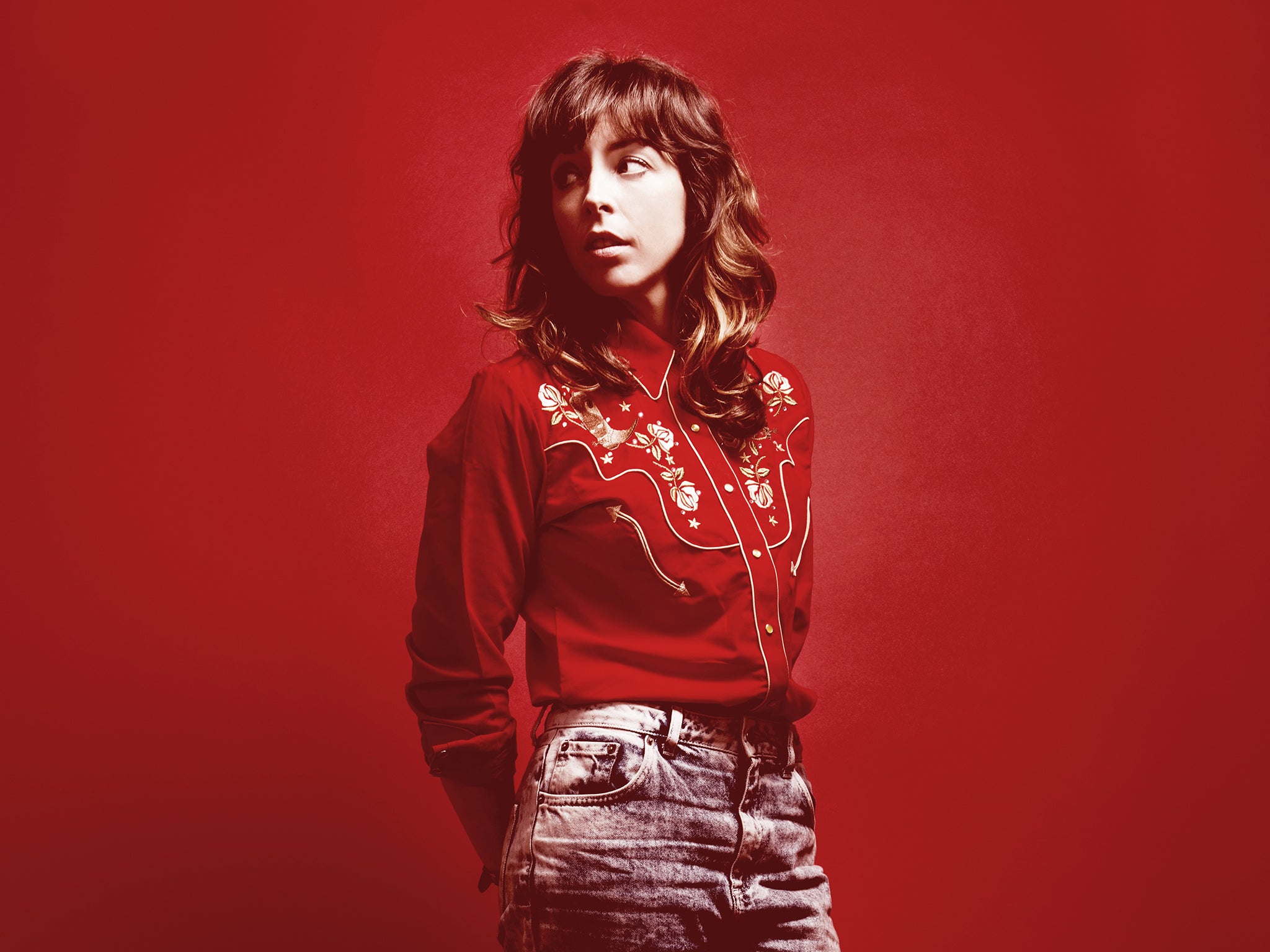Bridget Christie: I'm tackling some heavy subjects in my comedy routine, but that doesn't mean it can't be funny
It’s not for everyone, of course, but as Aristotle (or was it Paddy McGuinness?) once said to me, 'Bridget Christie. If you want to avoid criticism, say nothing, do nothing, be nothing'

In 2009 I started talking about some of the annoyances female comedians have to endure, such as being forced to use smelly, dirty, manly black or grey microphones after the men comedians have just dribbled patriarchal spittle all over them.
Is it too much to ask for comperes to switch them to scented, pink ones whenever a lady comic comes on?! I’m not sure about female quotas for TV panel shows, or being paid more than the blokes, but at least give us our own microphones for goodness sake. I can’t believe no one’s sorted this out yet. Oh, and just to be clear, yes I am speaking on behalf of ALL female comedians on this issue. Every single one of them. From Josie Long and Shazia Mirza to Tig Notaro and Hannah Gadsby. We all want pink microphones. It’s all we ever talk about when we meet up.
Another routine I had was about how people would often lump all of us female comics in together, as if we were a genre of comedy, like musical acts or double acts or flatulists. There was also lots of blather about how female comedians only ever did whimsy or relationship stuff, but it just wasn’t the case. There are loads of female comics, all doing different things. The first time I saw Holly Burn, for example, she was lying on the floor with a makeshift hooking device (I think it was a coat hanger, unbent), and was trying to get things off a sort of washing line above her head, in silence. It didn’t strike me as a particularly gender-specific routine. Unless it was a satire about voiceless women, trapped by domesticity. Of course, none of us would be allowed on stage at all, had the previous generation of female comics not paved the way for us. Women like Jo Brand, Jenny Eclair, Hattie Hayridge, Donna McPhail and Dame Edna Everage.
I didn’t have the confidence to talk about all this in my own voice, so I dressed up as an ant and talked about what it was like being an ant comedian instead. Most audiences, once they’d dealt with the confusion of being shouted at by a woman dressed as an ant, understood what I was doing. Once I’d gained a bit of confidence, I dropped the ant facade. A lot of stand-ups find their voice immediately. They arrive on stage, for their very first gig, fully formed, but I evolved from an ant. My onstage persona, if you like, is basically the ant without the costume and ant jokes.
From then I gradually started talking more and more about feminism. My 2012 show, War Donkey, was mainly about the rise in cosmetic surgery and Tory feminism, with about 10 minutes on donkeys. My 2013 show, A Bic for Her, was entirely about feminism and I properly committed to it.
For my new show, An Ungrateful Woman, I wanted to try and talk about two specific issues, if I could get the balance and tone right. The first was female genital mutilation (FGM). The second was a New York-based company called AR Wear (anti-rape wear), who had designed lockable anti-rape pants for women. I also wanted to talk about these new anti-pervert hairy stockings that were taking off in China. The idea being that if a woman was wearing a pair, pervy men wouldn’t hassle them on public transport. I decided that a routine about these might be a step too far for some audiences, especially Edinburgh Fringe audiences, who are famous for walking out of female comedians’ shows if their leg hairs are too long.
I knew that if I was going to talk about these serious issues, they would need to be absorbed within the parameters of a much lighter routine, which I think of as a safety net – for me and the audience. I could then deviate from the main story into the more serious sections, with these mini routines almost becoming asides. That way, the audience would know that the awful stuff of nightmares wouldn’t last long and that I’d soon be getting back to silly things. It may not sound like it, but my main objective is to make people laugh, not to make them feel uncomfortable or on edge.
I started this show at the end, then worked my way backwards. The last 20 minutes of the show dictated what the first 40 would be about. I remembered a ludicrous audition for a yoghurt advertisement I went to a few years ago, that involved me swooning at a handsome, strange man who’d been waiting inside my fridge in order to pass me a yoghurt, and I used this as a framing device for the more serious stuff.
There is always the risk, when you’re talking about important issues, that you are misquoted in reviews or paraphrased and that your intentions are somehow misconstrued, but I personally feel it’s a risk worth taking. Obviously, I am not “making FGM funny” but talking around the issue and trying to find humour there instead. Comedy doesn’t need to be about anything, it just needs to be funny, but there’s no reason why it can’t be both. It’s not for everyone, of course, but as Aristotle (or was it Paddy McGuinness?) once said to me, “Bridget Christie. If you want to avoid criticism, say nothing, do nothing, be nothing.”
Bridget Christie tours the UK to 1 November (www.bridgetchristie.co.uk); she plays Soho Theatre, London from 3 to 21 November (www.sohotheatre.com)
Join our commenting forum
Join thought-provoking conversations, follow other Independent readers and see their replies
Comments
Bookmark popover
Removed from bookmarks